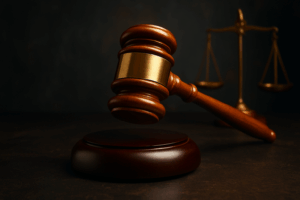President Trump's statements have stirred debate about the intersection of politics and justice, potentially undermining established legal norms.
**Trump Intervenes in French Politics, Supporting Marine Le Pen's Conviction Claims**

**Trump Intervenes in French Politics, Supporting Marine Le Pen's Conviction Claims**
In a surprising move, President Trump publicly defends Marine Le Pen, framing her legal troubles as an attack on free speech.
In an unprecedented intervention in French politics, President Donald Trump has openly sided with Marine Le Pen, the controversial far-right French politician who recently faced a conviction and subsequent five-year ban from public office. Dubbed a "FREE MARINE LE PEN!" campaign, Trump's remarks were made on Truth Social, where he labeled the conviction as another instance of "European Leftists using Lawfare to silence Free Speech." This statement was echoed by tech billionaire Elon Musk on his platform, X, amplifying the call for Le Pen’s supporters.
The conviction against Le Pen stems from accusations that she orchestrated a long-standing scheme to divert taxpayer money to relieve the financial burdens of her party, the National Rally. However, Trump's focus on the case has blurred the legal realities, aligning it instead with his broader narrative of victimhood often employed by far-right figures.
Notably, Vice President JD Vance has joined Trump in framing the issue as an assault against democracy, claiming that the current legal institutions are being weaponized to suppress far-right ideologies. This rhetoric spreads among Le Pen's advocates, who plan to rally under the slogan "Let's Save Democracy!" on Sunday, further cementing her image as a victim of political persecution.
Le Pen, who transformed her father's historically extremist party into a more palatable brand, now stands at a crossroads in her political career, navigating legal challenges while vying for public support. Critics warn that such high-profile endorsements from American leaders could embolden extremist movements in Europe and erode trust in the rule of law both domestically and abroad. The outcome of her appeal, and the ensuing political fallout, remains to be seen.



















